FREQUENTLY ASKED QUESTIONS
If you are unable to find what you are looking for, please use the form below to ask us a question.
You can also contact us at 206-374-0109 or by email by clicking the button below.
SELECT WHICH FAQS TO VIEW
GENERAL FAQS
How do I get to EBTCS?
From Interstate 5 Northbound
- Take the Seneca Street exit, #165, on the left.
- Merge onto Seneca Street, heading West.
- Turn Right onto 4th Avenue.
- Turn Right onto University Street.
- Turn Right onto 5th Avenue.
- IBM tower will be on your left between University and Seneca Street.
From Interstate 5 Southbound
- Take the Union Street exit, #165B.
- Go forward onto Union Street.
- Turn Left onto 5th Avenue.
- IBM tower will be on your left between University and Seneca Street.
From SR 520 Westbound
- Take the I-5 South exit on the left towards City Center
- Merge onto I-5 South.
- Take the Union Street exit, #165B.
- Go forward onto Union Street.
- Turn Left onto 5th Avenue.
- IBM tower will be on your left between University and Seneca Street.
From Interstate 90 Westbound
- Take the I-5 North exit, #C2, towards Vancouver, BC., to the right.
- Take the Madison Exit, to the right.
- Turn Left onto Madison Street.
- Turn Right onto 4th Avenue.
- Turn Right onto University Street.
- Turn Right onto 5th Avenue.
- IBM tower will be on your left between University and Seneca Street.
What are your hours?
Our front office is staffed Monday through Friday, 8:00 am – 6:00 pm. We respond to calls 9:00 am – 5:00 pm. Evening sessions may be available for ongoing therapy, Please speak to your therapist about their availability.
What is your cancellation policy?
Therapy Cancellations
If it is necessary to cancel an appointment, you must cancel 24 hours before your scheduled appointment time. You will be charged the regular fee for the session if you have not notified our office of your cancellation 24 hours before the time of the appointment. All voicemails are dated and timestamped. If your appointment is scheduled for a Monday, please leave a voicemail over the weekend to confirm your cancellation.
Psychiatry Cancellations
EBTCS Psychiatry policy requires 48-hour notice to cancel or reschedule an appointment for any reason. There is a late cancellation fee for any missed or cancelled appointment with less than 48-hour notice. If you have a contagious illness which might lead you to miss a visit, please call our office at 206-374-0109 to inquire whether telehealth is available to help avoid a late cancellation charge.
Do you offer a sliding scale or reduced fee?
Unfortunately, at this time we do not offer a sliding scale or reduce fee schedule for our services.
However, we do run a training practicum for PhD students that is directly supervised by our expert clinicians. We charge a reduced fee for these services (though these services are not offered in all of our treatment programs). If you are interested, please contact our office at 206-374-0109 to find out more.
What forms of payment do you accept?
Payments Accepted
EBTCS accepts payment at the time of service. Our policy is to have a Visa or Mastercard on file. Clients are responsible for all fees.
HSA/FSA Card Policy
Clients may also choose to have an additional Health Savings Account (HSA) or Flexible Spending Account (FSA) card on file. In the event an HSA or FSA is the primary card on file, we require a Visa or Mastercard as a back up.
What is the payment policy?
Our policy is payment in full at the time of service and requires a credit card to be placed on file prior to starting service with EBTCS.
If you are meeting with one of our psychiatrists for medication management and have insurance coverage with Regence or Premera we are considered in-network providers. This means we will courtesy bill your insurance directly for psychiatry appointments only. All of our therapists are considered out-of-network providers.
Clients are responsible for all charges incurred, whether or not insurance provides coverage. We provide clients with a monthly billing statement for the services rendered and fees paid to submit to insurance companies for out-of-network reimbursement.
What are the typical psychotherapy billing codes?
Initial Evaluation – Billing CPT Code: 90791
Recurring Sessions – Billing CPT Code: 90834 (38-52 minute session) or 90837 (53-60 minute session)
DBT group/skills training sessions – Billing CPT Code: 90853
Do EBTCS Psychiatrists accept insurance?
EBTCS psychiatrists provide medication management services. They are currently contracted with Regence and Premera. If your mental health coverage is provided by either Regence or Premera (Blue Shield or Blue Cross), please provide our office with a copy of your insurance card at the time of your first psychiatry appointment. Our office will bill your insurance directly for appointments with our psychiatrists only. If our psychiatrists are not contracted with your insurance company, please follow-up with your insurance company about out-of-network reimbursement and claims submission.
Will EBTCS submit my charges for out-of-network coverage?
Clients at EBTCS are responsible for submitting their own statements/paperwork to insurance for out-of-network reimbursement. EBTCS will not bill insurance companies on behalf of clients for out-of-network claims.
Do EBTCS Psychotherapists accept insurance?
EBTCS’ psychotherapists are not contracted with any insurance panels and are considered out-of-network providers. You may contact your insurance company to determine if they will reimburse you for services provided by EBTCS through your out-of-network benefits. Many insurance plans do provide the opportunity to apply for reimbursement for therapy services received from out-of-network providers. Please call your insurance company prior to your first appointment and request further information regarding your out-of-network benefits.
Some helpful questions to ask your insurance company include:
- I am seeking mental health treatment services at the Evidence Based Treatment Centers of Seattle. Does my plan have any out-of-network coverage for mental health services?
- Is there an out-of-network deductible, and if so, what is it?
- The billing CPT codes will be ________________. What is the maximum allowable for each of these codes? What percentage of this allowable will my plan pay for each of these codes?
- How many mental health sessions does my plan cover per year?
- What information/forms do I need to submit in order to receive out-of-network reimbursement?
- How and where do I submit reimbursement claims (online, mail)?
- Are there any time limitations regarding filing my claims?
DBT CENTER FAQS
What is the goal of DBT?
Our goal is to help you build a life worth living. We want to help you formulate and reach your own personal goals by understanding your own reactions to distress and using DBT skills and other strategies.
What does DBT stand for?
Dialectical Behavior Therapy (DBT) is based on Marsha Linehan’s treatment manuals, Cognitive-Behavioral Treatment of Borderline Personality Disorder (1993) and Skills Training Manual for Treating Borderline Personality Disorder (1993). An updated skills training manual, DBT Skills Training: Handouts and Worksheets, was published in 2015.
How effective is the treatment?
DBT is the most researched treatment for borderline personality disorder. Although there are a few other treatments with promising data, DBT has the most solid evidence at this time.
Do I have to attend skills group?
Skills training group is a formal part of DBT for many of our clients. Skills group is designed to teach you new ways of responding, and is therefore considered a very important part of our treatment program. However, there are exceptions. For example, some of our clients only need training in one module, or have already learned many of the skills in another setting. Each client will have a treatment plan tailored specifically to his/her needs, so this question will be best answered by your own provider.
Can I do DBT and keep working with my current therapist?
We find that receiving treatment from two therapists at once can be very confusing, and in some instances, actually harmful. For this reason, our clients take a break from working with their former individual therapists while in DBT; we are happy to facilitate a return to that therapist once DBT has been completed.
How long does treatment take?
Most research suggests that individuals with multiple, chronic problems related to emotion dysregulation typically benefit from one year of DBT. However, there is wide variability. You and your therapist will establish an estimated length of treatment in your first few sessions. You may successfully complete therapy before that date, or you may choose to stay beyond that date to work on additional targets, but typically we aim for one year.
How is DBT different from CBT?
DBT is a form of CBT. DBT uses all of the strategies from CBT, with much more emphasis on emotion than is found in traditional CBT. Learning how to identify emotions, experience them effectively, regulate them, and increase pleasant emotions are all strongly emphasized in DBT.
Additionally, while CBT is typically designed for a particular problem or psychiatric diagnosis, DBT is designed for individuals with several chronic problems and/or diagnoses. DBT’s target hierarchy allows the provider to target multiple problems in a structured fashion. If we think there is a less intensive, briefer treatment that will work for you, we will be sure to discuss that option with you.
Because DBT is designed to address multiple problems, our DBT therapists are well trained and experienced in a wide variety of CBT treatments. As needed in your treatment, your therapist will use other evidence-based treatments for the diagnoses and problems relevant to you.
Do you have evening appointments?
Yes! You may work out your appointment schedule with your specific provider, but most of our providers offer at least some evening appointments. We do not typically offer weekend appointments.
What is a dialectic?
Dialectics refers both to a means of communication and to a world view. Both are central to the DBT model. This is a complex topic, so we will just give a brief answer here. If you have more questions about this, please be sure to ask your provider.
In brief, a dialectic exists when two opposites co-exist. Instead of focusing on which position is “right” and “wrong,” dialectics would assume there is validity in both points. When one thinks dialectically, one assumes something is being left out from any one point of view; instead of assuming one is correct, one considers what is missing in one’s own perspective, seeks out the opposing view, and can hold both sides as true at the same time. For example, when one is cut off in traffic, instead of thinking, “What a jerk!” one could consider both that he/she does not like being cut off AND there are reasons why the other driver did so. Dialectical thinking can be extremely helpful in increasing flexibility and decreasing “black and white” or rigid thinking that can lead to intense emotions.
There are many examples of dialectics in DBT, but the primary dialectic is that of acceptance and change. Rather than focusing only on acceptance, or only on change, DBT puts equal, intense emphasis on accepting an individual just as he/she is AND working hard to change the responses (emotions, thoughts, overt behaviors, etc.) that are causing problems.
A dialectical world view also emphasizes the interconnection of all things. A relevant example relates to the “identified patient” in a family. Instead of laying blame on a particular person (e.g., the client, the parents, etc.), a dialectical world view suggests that each family member’s behavior influenced the other members, and that with enough interactions over time, both sides can have significant influence on the other. In other words, our responses are caused by events, and our responses in turn cause other events; we can understand and change these patterns without judgment and blame.
There are many other ways dialectics arise in treatment, including creating balance in one’s life and in one’s therapy sessions. Your DBT therapist will discuss this concept with you and provide more examples.
Can't find what you're looking for?
Ask your question here:
Please type your name, email address, and question and we will try to get back to you as soon as possible.


